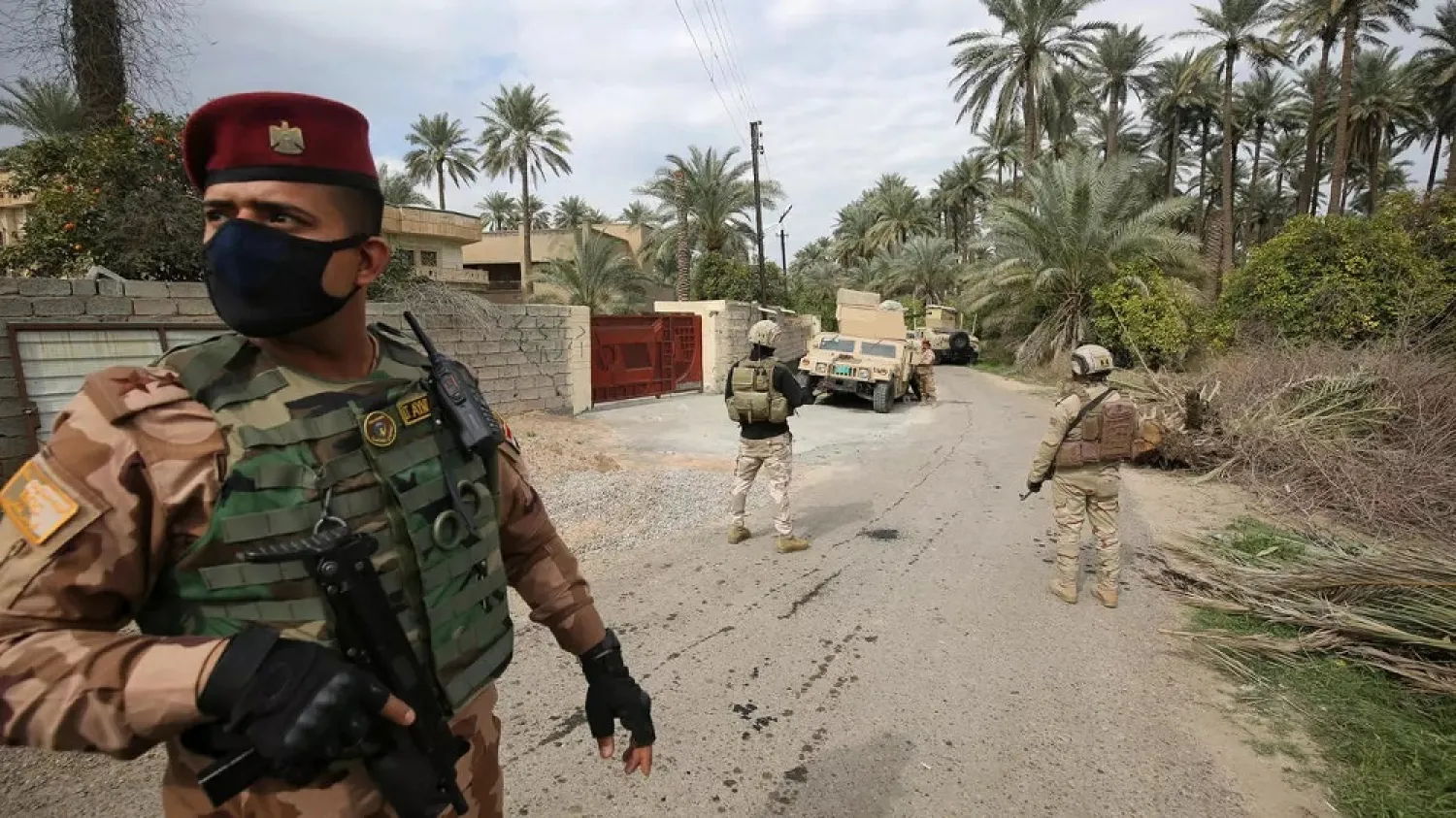Iraqi security forces clashed with the ISIS group north of Baghdad on Saturday, leaving at least five extremists and two security personnel dead.
A joint force of army troops and state-sponsored tribal fighters raided an ISIS hideout in the leafy plains of Tarmiyah, according to a statement from the military.
"We had learnt that ISIS was holding a meeting there to plan for attacks on the capital Baghdad," Ahmad Salim, head of the Baghdad Operations Command, said near the site of the fighting.
Ensuing clashes killed five ISIS fighters and two tribal pro-government forces, the military statement said.
Prime Minister Mustafa al-Kadhimi met with top military commanders as troops combed the fields and agricultural lands around Tarmiyah.
The new raid comes nearly one month to the day after twin suicide bombers killed more than 30 people in the packed Tayaran Square, the bloodiest such attack in Baghdad in three years.
Security sources said the two extremists had infiltrated the city from the north.
A few days later, nearly a dozen fighters from Iraq's Popular Mobilization Forces (PMF) were killed in an ISIS ambush -- also north of the capital.
Since then, security forces have ramped up their efforts to hunt ISIS sleeper cells there, with Kadhimi announcing the killing of Abu Yasser al-Issawi, identified as the top ISIS figure in Iraq, on January 28.
In early February, security forces killed another ISIS leader who they believed helped transport the twin bombers into Baghdad.
Iraq declared ISIS territorially defeated in late 2017 after a three-year fight aided by US-led coalition air strikes and military advisors.
ISIS attacks in urban areas have dramatically dropped since then, but Iraqi troops have continued to battle sleeper cells in the country's mountainous and desert areas.









